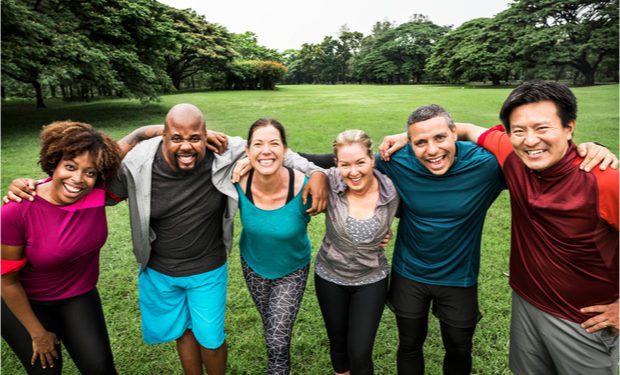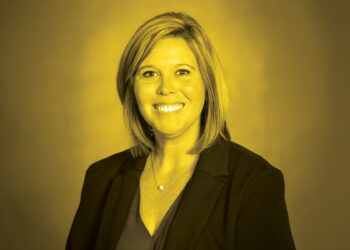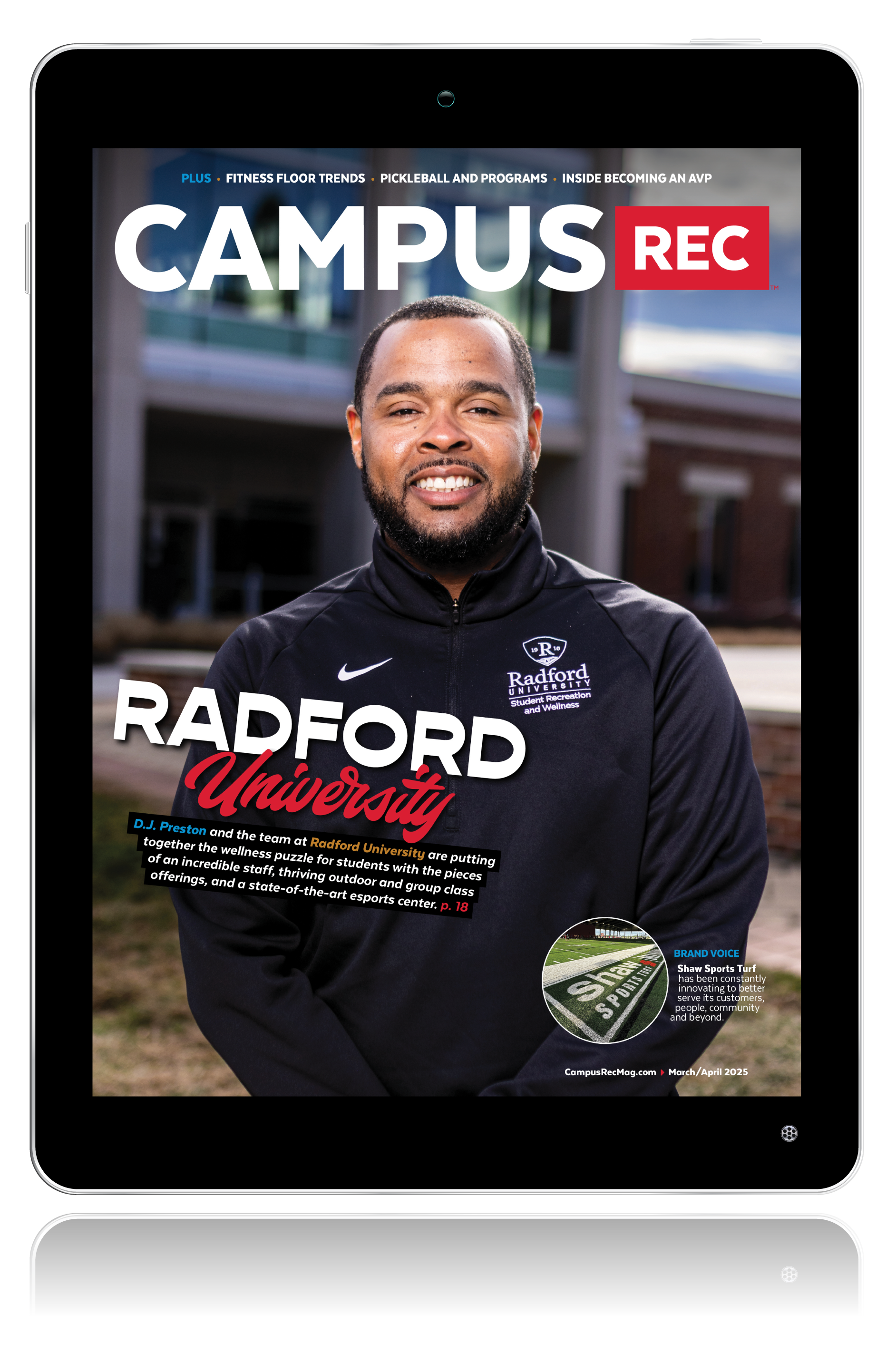When it comes to Equity, Diversity and Inclusion (EDI), campus recreation can play a vital role.
“Campus recreation gives us the platform to connect with students in what may be a more inclusive program where many different backgrounds, experiences, interests, etc. all come to recreate together,” said James Wilkening, the director of the Recreation and Wellness Center (RWC) at the University of Central Florida (UCF).
However, the work within EDI is something that happens over long periods of time in the relationships you’re forming both inside and outside of the department. Wilkening noted it’s not a checkmark item that one simply accomplishes. It’s a continual conversation and pursuit of discussion.
Some of the specific EDI action items Wilkening and his team have pursued over the years include:
- Hiring a diverse workforce.
- Hiring staff where EDI matters.
- Including many aspects of EDI in staff training and development.
- Having a departmental Diversity Committee.
- Development in a department Diversity Statement: The University of Central Florida (UCF) Recreation and Wellness Center (RWC) aspires to create an environment in which we celebrate the differences we share across the spectrum of human diversity. Diversity is vital to an individual’s holistic development and the social fabric of the university. We are committed to creating an inclusive environment through hiring and developing culturally competent staff members, outreaching to under-served populations, and providing facilities and programs that support all members of the UCF community. Our expectation of the RWC community is to embrace an open-minded and respectful attitude toward individual differences.
- Involvement and being visible on campus and nationally within NIRSA.
- Have goals and a vision that highlight the importance of EDI.
- Include programs that encourage inclusiveness and partnering with others on campus:
- Cultural Dance Series
- Inclusive Recreation Expo
- UCF Police/Social Justice and Advocacy/RWC Community Policing Forum
At Colorado State University (CSU), Campus Recreation also has been positively impacting its role in EDI conversations. For example, in the spring of 2020, two new weekly group fitness classes were started. One was a dance class in partnership with the Pride Resource Center called Brazilian Beats. The other is the Latin Lunes Cycle class, in partnership with El Centro, the CSU office supporting the Latinx community.
EXTRA CREDIT: How the campus recreation industry is making the conversation of EDI one that is here to stay.
“Everyone is welcome in both classes,” said Torin Kaletskey, the assistant director of Fitness. “We surveyed our participants and found these classes have fostered community among their participants in a really spectacular way. Some came who had never been to the Student Recreation Center before, and almost all of them started participating in other recreation programs as a result. Nearly every participant reported engaging with Campus Recreation at least once a week and also reported they feel an increased sense of belonging at CSU because of the classes.”
There’s also professional development around social justice at the university. Erin Patchett, the director of Administartion, shared one such offering is an annual week-long Diversity Symposium. Patchett said they encourage staff in the rec department to attend as much of the symposium as possible.
Plus, internal training offers a three-session series on inclusion. For full-time staff, there is the monthly series Inclusivity Dialogues that includes speakers, webinars and discussions. “We have tracked learning from both of those department-led efforts and the results have been positive in terms of enhancing the knowledge and awareness of our staff,” said Patchett. “Next steps including helping build skills and capacity for action.”
And in the works is the launching of the Inclusivity Committee. All in all, the goal is to increase the campus recreation team’s skills and capacity when it comes to equity work. Patchett said growing in awareness and knowledge is an important first step.
Wilkening agreed when it comes to where to start with EDI. He suggested seeking guidance from your office of Diversity and Inclusion, Social Justice and Advocacy programs, and to view NIRSA’s Equity, Diversity and Inclusion Resource Guide. “If you haven’t done any work in the realm of EDI it certainly makes it more challenging, but you need to start with education of yourself and then your team,” he said.
Through all of CSU’s work and education in EDI, Patchett shared three things they’ve learned in hopes to empower other campus rec professionals on their own EDI journeys:
1. Education to Action
“While we ready ourselves to engage, there may need to be more education to ensure our actions are intentional and supportive of already existing social justice efforts and movements as opposed to rushing into actions that may unintentionally perpetuate harm or oppression,” said Patchett. “As so many Black women activists have shared on social media, this is a marathon and not a sprint, so we also need to prepare ourselves to stay engaged in this work for the long haul.”
2. Integrate Efforts Across the Department
“Over time, we have been working to ensure EDI is not just an effort made by one committee or area of our department,” said Patchett. “We have woven these concepts into recruiting and hiring staff, professional development, evaluations, programming, facilities, marketing, assessment, day-to-day conversations, policies and more. By weaving principles of social justice into multiple areas, it not only encourages a culture of inclusion, but it also establishes a more sustainable way to keep these efforts moving forward, even when things get difficult.”
3. Be Who You Say You Are – Department Guiding Principles.
“Social justice and inclusion are two of our university’s Principles of Community. And we also have inclusion as a department value,” said Patchett. “While they are just words, our department is always striving to put those principles into action, and from my experience, it has been helpful for us to have those principles to connect into our area-specific or individual efforts.”










